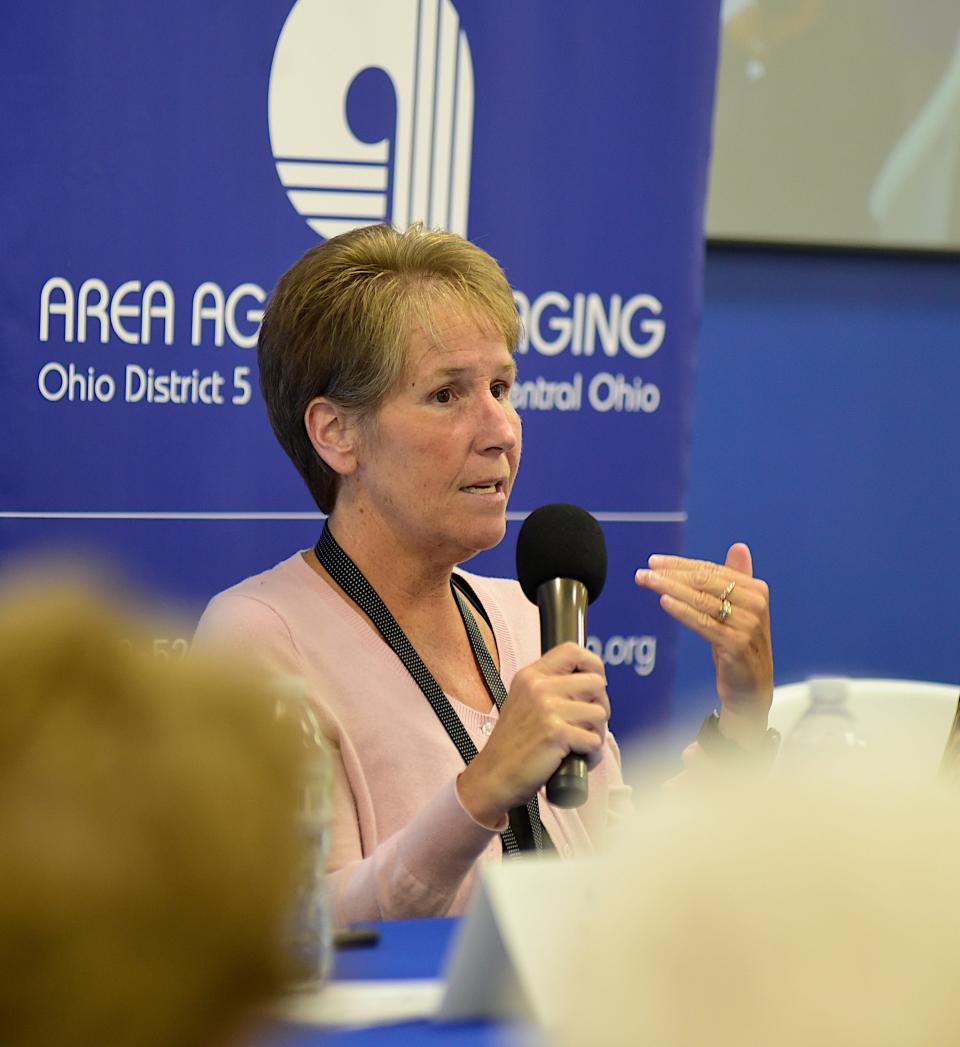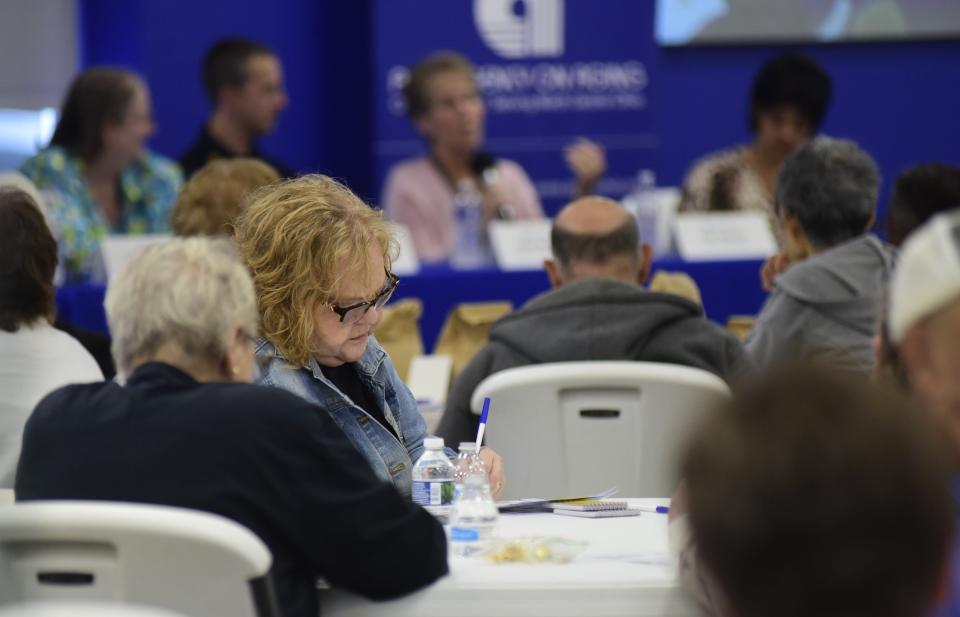Fight, freeze, or flee? Older adults learn to plan and prepare for disasters of all kinds
Disaster can strike any person at any time in any place.
That's why the time is now to plan, prepare and practice, senior citizens learned Thursday at the Ohio District 5 Area Agency on Aging office in Ontario.
The training for older adults was held in conjunction with National Preparedness Month, which takes place every September, explained the event's emcee, Chelley Kemper, a local morning radio and television show host.
The Federal Emergency Management Association determined this year's preparatory efforts should focus on senior citizens.
Helping them become disaster-ready was a panel of local experts: Rebecca Owens, director of the Richland County EMA; Terry Carter, First Call 211 coordinator; Adam Spellman, interim chief of the Springfield Twp. Fire Dept.; and Eric Schaefer of Catalyst Life Services.

Myriad potential disasters linger daily
Successful disaster response begins with planning, Carter told the crowd of more than 100 older adults.
"What is it that you're going to need?" she asked.
Each of them would need food, adequate shelter and a list of emergency contacts.
Some require oxygen, pharmaceuticals and medical devices.
A few might need to have a "go bag" on hand in case they are ordered to evacuate their homes in a moment's notice.

"Think this through," Carter told them. "Write it all down."
The EMA director reminded them that any sort of emergency could awaken them that very night.
"We're very blessed that the only major events we've had have been tornadoes and floods," Owens said.
Fires, hazardous-material spills and a dozen other shocking calamities are possible each day.
'Let people know where you're going'
Going a step beyond planning by completing adequate preparation is the key to finding success in the minutes, hours and days after emergencies, Spellman assured the audience.
Throughout his career as a firefighter and paramedic, he's met thousands of Ohioans who were having the worst day of their lives.
Many of them became displaced, leaving friends and family wondering where they could be. He told the seniors to keep that in mind as they plan and prepare for floods, fires and other disasters that could force them to leave their homes.
"Let people know where you're going," Spellman said. "That way we all know you're not still in your home."
Just knowing what to do in an emergency is not enough, though. The chief said everyone needs to practice their plan.
"Practice makes perfect," Spellman said. "Practice is key, especially for fire drills."
Fight, freeze, or flee?
Prior experiences can be helpful during the next emergency, Schaefer told the older adults.
But prior events can also inhibit humans, which makes self evaluation critical ahead of disasters.
She recalled her experience with a microburst in 2008. She and her family were on Lake Erie. In the moment, they all believed it was a tornado.
The storm struck at 11:15 p.m. and Schaefer said she will never forget sheltering her children, ages 3 and 5.
By this spring, those children were 18 and 20. The family was back at the same campground on Lake Erie.
"All of a sudden, the bells ring for us to go to our emergency storm shelters," Schaefer said. "We all had some very strong reactions because of the experience we had had before."
The three typical responses, she explained, are to fight, to freeze, or to flee.
She and her family all learned, through experience, which way they will react during future disasters.
Most people, she said, need to pause and take a deep breath in the early moments of an emergency to calm themselves and to focus on the task at hand.
"If you see somebody in the frozen state, it's important that you move them to safety," Schaefer said. "Don't assume they will do that on their own."
'This comes back to self responsibility'
Panelists reminded the older adults that, during an emergency, they should keep their cell phone usage to a minimum so that they can conserve battery life for communications.
The seniors learned that heaters and generators can become deadly if the fumes are trapped in their home.
Although emergency responders will eventually come to their aid, residents may need to keep themselves alive for a few days before that is possible.
"You need basic food items," Owens said. "Things to tide you over until you can get a full meal."
First-aid kits, blankets and other items that may seem elementary now could end up saving their lives in the future.
"Some of this comes back to self responsibility," Owens said. "Be able to care for yourselves."
Those who find themselves in a good place after a disaster should look around to see who they can help.
"The good Lord tells us to take care of our neighbors," Owens said. "During a disaster is the best time to do that."
ztuggle@gannett.com
419-564-3508
This article originally appeared on Mansfield News Journal: Older adults learn to plan and prepare for disasters of all kinds

